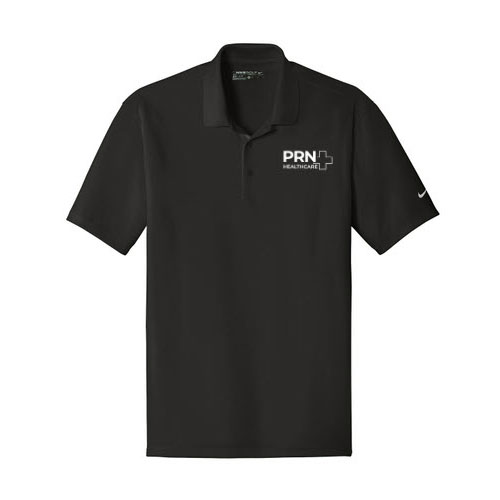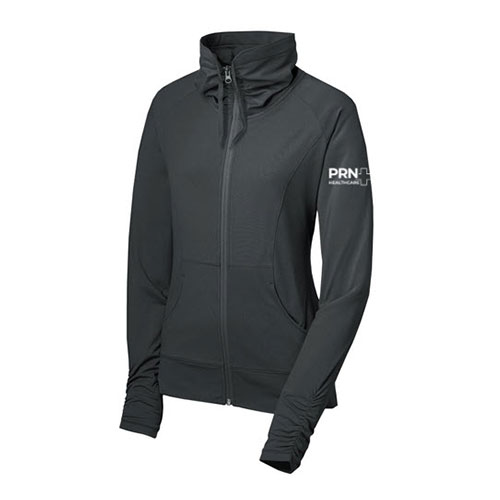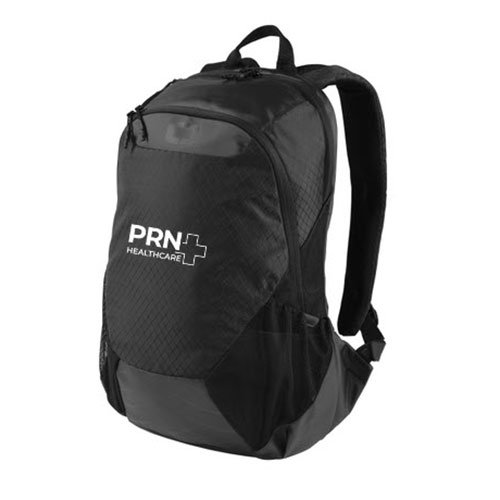Becoming a travel nurse is an exciting new adventure. However, there are a lot of components that make up the full travel nursing experience. We want to prepare you to the best of our abilities with this list of 12 things nurses have said they wish they knew before becoming a travel nurse!
Read Your Full Travel Contract

This is not exciting, but it is necessary. You’ll want to make sure to read AND understand your contract, even if you are extending a your existing contract. Ensure what you asked for has been honored, like pay, and requested time off. Your contract contains reimbursements, float and cancellation policies, shift times, and the specific unit you will be working on. If you have any questions or concerns with your contract, ask! Your recruiter can fix or explain clauses. Once you sign your contract you agree to all the conditions and policies in the contract.
Make Sure to Understand Nurse Housing and Housing Stipends

You are eligible for housing stipends when you duplicate your living expenses. You have a few options when it comes to finding short-term housing. The first is getting housing “provided” by a travel agency, it goes in the agency’s name. However, it is ultimately coming out of your pay package. It is true housing is not free, and if it is, then it is probably too good to be true.
PRN Healthcare does not upcharge any housing, but some agencies might. When a traveler lets a travel agency know what they’re looking for (house, apartment, studio, cabin, rent a room in a house, etc.) their Housing Coordinator sends options of what is available for where they are traveling and the traveler decides which housing they’d like to go with. Housing it’s all your choice, the agency does not pick it for you but will give you options.
Oftentimes it is beneficial for the traveler to take the housing stipend and find housing themselves instead of having a travel agency help with housing and here’s why:
Let’s say your housing stipend is $625/wk and your meals and incidentals stipend is $275, totaling $900 tax-free per week. The housing you found that you really like is $1250/month, which comes to roughly $282.26 per week. If you took that same housing option but had your agency put it in their name, you would no longer be eligible for the housing amount tax-free, so the agency would max out the meals and incidentals stipend (IRS guidelines standard is $385/wk). Now instead of getting $900 tax-free, you would only be eligible to receive up to $385 tax-free. If there is any money left to go to you, this would have to be a taxable amount.
Make Sense of Taxes

To begin, we are not tax professionals and would advise any nurse to consult a tax professional for information. What we DO know is that a nurse is only eligible for tax-free money if they are “duplicating living expenses”—there is no “distance rule”. This is what the IRS considers qualification for receiving tax-free money.
Secondly, a travel nurse can receive tax-free money for up to one year at the same hospital. If they stay longer than a year, they would lose their eligibility for tax-free money. The IRS now considers this their permanent residency instead of their tax home. Make sure to understand your tax situation with your recruiter before signing on that dotted line.
For more info on travel nurse taxes read “Understanding Travel Nurse Taxes“.
Research Your Contract Location before You Get There

This seems obvious, but it may surprise you how many variables change just by crossing a state border. Before packing your clothes, check the temperature averages and weather patterns for your area. If you’ve traveled in the Midwest around fall it may surprise you how quickly the crisp autumn mornings turn to a snow blizzard!
Understanding the price of food, entertainment, and taxes of your location can help you budget for your stay. It also allows you to arrive with realistic expectations. Create a bucket list of what you want to eat and places you want to explore! This gives you a reason to get out and explore on your days off.
Not sure where to go next? Here is a list of the best states to work in as a nurse.
Learn From Experienced Travel Nurses

Going from a staff nurse to becoming a travel nurse is a totally different ball game. A new traveler never knows exactly what to expect while travel nursing for the first time, no matter how much research is conducted. Chatting with experienced travelers is the best way to gain nuggets of information you can’t find from a quick Google search. We always recommend finding a veteran travel nurse who you get along with well, and have them be your nurse mentor!
Don’t Over Pack

This is a mistake many first time travelers make. Nothing is more of a pain in the butt than moving objects you haven’t used from one location to the next every 13 weeks. For a packing guideline read 5 Tips for Packing for a 13 Week Travel Contract.
When packing for your travel assignment, try to be as realistic as possible. Will you actually use that crock pot or those snow shoes? The less clutter the easier it will be to move in and out of your new housing. Make sure to research the location to see what amenities will be close to you. If you can rent snowshoes that might be a better option than hauling yours cross country. If you are in a hotel with complimentary coffee, a coffee pot might be unnecessary. Always inquire what is included in your housing so you can pack efficiently.
Pick a Travel Agency for the Recruiter

We’ve heard from a handful of nurses that they were first attracted to the big-name agencies when they first started traveling. However, once they talked with a recruiter they felt like just another number. A bad recruiter experience can spoil the entire travel nursing and agency experience. Don’t let that happen by doing your research. Here are five great qualities to look for in a recruiter.
Shop around for recruiters that you feel a connection to who is trustworthy, caring, and bound and determined to get you the best contract out there! You want someone who matches your pace and is quick to respond when you need them.
Don’t Burn Bridges

No matter how badly you dislike your current contract, finish it out the best of your ability, if possible. After all, you only have committed to 13-weeks at the placement. A bad experience with your temporary employer can ruin your chances of having positive recommendations for other jobs in the future.
In the agency world if you break a contract, do a poor job at your placement, or have poor attendance the agency and entire hospital system can blacklist your name as a “Do Not Hire”. This cuts the chances of ever going back to that system or agency to nearly zero. This is not meant to scare you but to empower you to ask for exactly what you want and are comfortable with in a contract.
If your heart isn’t in a contract let your recruiter know beforehand. Don’t ever feel forced into a contract. Also, make sure you are comfortable with the floating protocols before signing on the dotted line.
Don’t Assume You Know New Hospital Procedure

Every single hospital is different and runs with different procedures and unspoken rules. You are already the new kid on the floor so saying something like, “Well, at my home hospital we do it this way…” will only irritate your co-workers. Instead ask questions your first day, even if they may seem obvious, so you know exactly what is expected of you and how the floor functions. Even veteran nurses have to ask questions and adjust to a new assignment.
Always Be Ready For the Unexpected

Unfortunately, shifts and contracts can get cancelled and if that happens it is never fun. Your recruiter will of course move mountains to ensure you keep working. Keep an open mind if this happens and try not to get frazzled. Your recruiter will try to get you a contract in your desired location, but stay open to other options too. As a safety net, it is recommend to always have 3 months of income saved away for cases of emergency.
You will be Treated Differently than a Staff Nurse

Every facility you step foot in will be different. As far as the staff nurses are concerned you are the new kid on the block but are most likely getting paid more than them. This can bring out jealousy and resentment. Every once in awhile you will experience a nurse bully. When this happens know that this will pass and you only need to stay for a short period. Don’t let one bad apple effect your experience! We recommend avoiding all hospital politics and gossip while at a facility, take time for yourself on your days off, and when necessary to document and report the encounters to your HR department. Always let your recruiter know what is going on.
You might also be one of the first individuals to be asked to float. The floating protocols are in your contract, make sure you are comfortable with those before signing on. Floating is never fun but is sometimes necessary.
Take into Consideration The One-Year Rule

The one-year rule is the notion that you must have at least one year of experience in the last two years to qualify for a travel nurse position. For example, if you want an ICU travel contract you must have at least one year of experience as an ICU nurse within the last year. There is no exceptions if you want to switch specialties or if you took a year plus off of bedside nursing. This rule is put in place by agencies and the facilities for your own benefit. Ensuring you have one year of recent experience under your belt helps protect your license. If you are a new nurse, you can start getting in contact with recruiter around the 6-9 month marker to start talking about travel nursing opportunities. This allows you to build a relationship with a recruiter and gives you the time to choose your ideal agency.
We hope these 12 tips have helped you get a better idea of what to expect in the travel nursing world. Many of our tenured nurses have expressed these as the bits of information they wish they knew before becoming a travel nurse. Follow this as a guideline but remember to always be upfront with your recruiter, try to absorb as much knowledge from veterans as possible, and always read and understand your contract and housing stipends before signing on the dotted line. Have more questions on travel nursing? We’re happy to chat with you!





